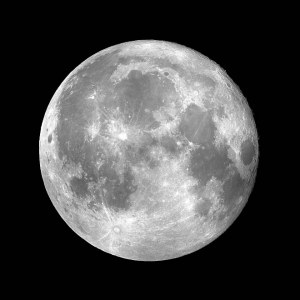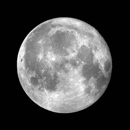Full Moon Energizes Birds
Discovery News
September 18, 2008
If the night sky seems less tranquil on nights when the moon is bright, the observation probably isn't imagined since a new study has determined that at least one bird's level of activity dramatically increases with moonlight.
The finding adds to a growing body of evidence that lunar phases affect the behavior of insects, birds, fish and mammals -- including humans.
The study, which has been accepted for publication in the journal Animal Behavior, is among the first to provide direct evidence for the "full moon effect," since many other claims have been based on indirect observations and even folklore, such as werewolf tales.
In the case of streaked shearwaters, the focus of the study, this marine bird flew for longer periods and landed on water more frequently on nights with a full moon. But because sharks and other bird predators also appear to be more energized on such nights, the shearwaters didn't stay on the water for long.
"Pelagic seabirds, including shearwaters, are known to be preyed upon by sharks or seals at sea, so birds are attacked from under the sea, not from the air," lead author Takashi Yamamoto explained to Discovery News.
"When birds are sitting on the water's surface at night with a full moon, it shades moonlight passing through into the sea, so predators might be able to detect seabirds using such shades," added Yamamoto, a researcher at Japan's National Institute of Polar Research.
He and his colleagues captured 48 streaked shearwaters at Sangan Island in Japan. They attached global location sensors to the birds. These devices recorded time, light levels, immersion in seawater and water temperature. Geographical locations were estimated using the light data. At the end of the study, the researchers recaptured the birds and removed the sensors.
Since the birds are in the middle of the food chain, they not only move more to escape full moon-stimulated predators, but they also seem to take advantage of the improved light situation by feeding at night on squid and fish, especially their favorite: anchovies.
The scientists believe other marine birds, such as albatrosses, receive a comparable caffeine-like behavior jolt from a full moon.
Yamamoto further pointed out that prior research found that lunar cycles change insect and bird hormones. They also help to influence fish reproduction. In rodents, they even appear to affect the way food tastes to rats.
Chanchal Bhattacharjee of the Accident and Emergency Department at Bradford Royal Infirmary and colleagues additionally found that animals bite more when the moon is full. Over a two-year study at the infirmary, based on patient numbers, they discovered that during such nights the chances of suffering a bite from any animal -- mostly dogs -- double.
As for humans, Yamamoto says the connection has proven trickier to establish "because many implicating factors may influence human behavior," such as interaction with others or stressful situations.
"But," he added, "there could be a possible explanation that lunar cycles affect hormone changes in humans and such changes consequently control human behavior, such as becoming violent."
He hopes future studies, on both birds and other animals, will help to better identify exactly how lunar phases change behavior and the biophysical processes that underlie these changes.





 Share your thoughts in the Forum
Share your thoughts in the Forum